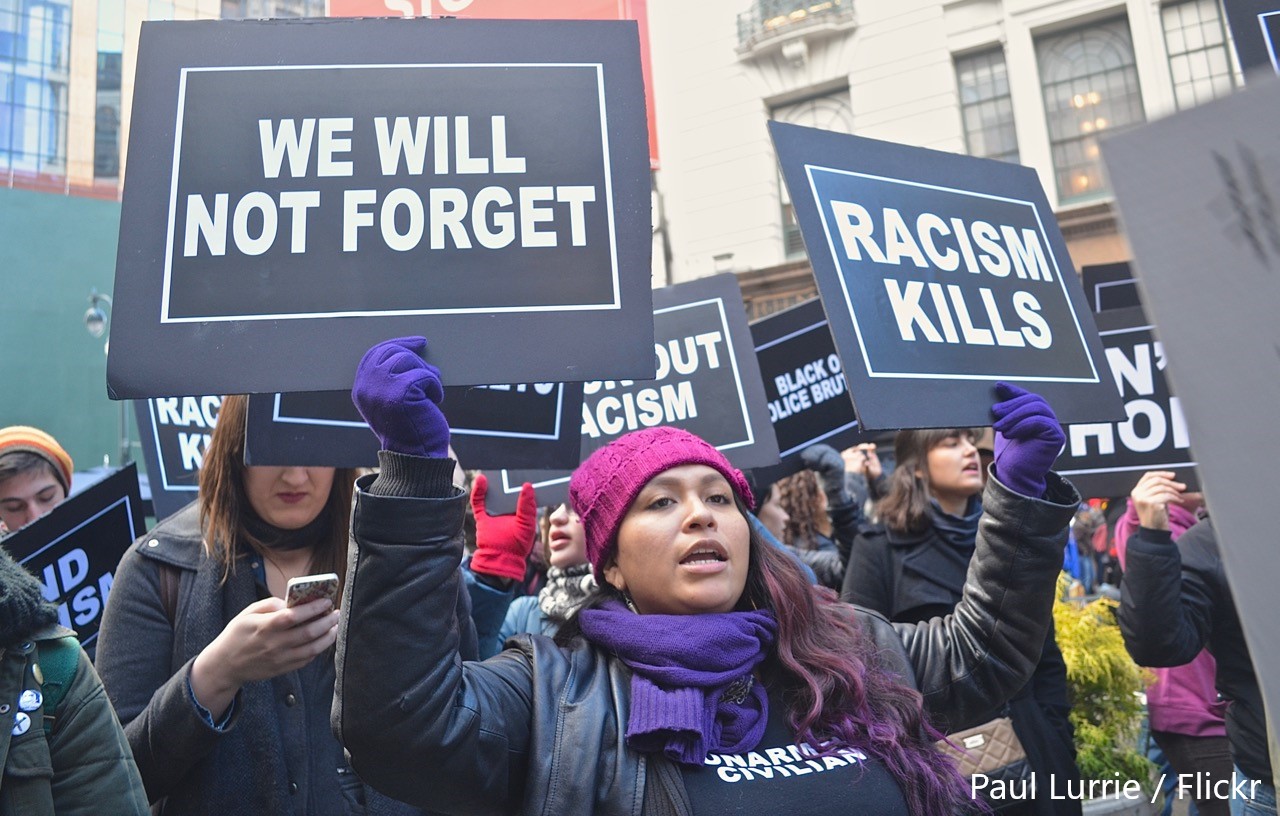One year after the killing of George Floyd, Race and Equality calls for strengthening human rights mechanisms to combat systemic racism and police brutality
Washington, D.C.; May 25, 2021.- One year after the killing of George Floyd by four police officers in Minneapolis, Minnesota, the International Institute on Race, Equality and Human Rights (Race […]

Washington, D.C.; May 25, 2021.- One year after the killing of George Floyd by four police officers in Minneapolis, Minnesota, the International Institute on Race, Equality and Human Rights (Race and Equality) reiterates our call to international human rights bodies and states to re-double their efforts to combat systemic racism and police brutality, including by strengthening mechanisms related to UN Human Rights Council Resolution 43/1. We also call on the United States government to listen to victims and survivors who demand justice, reparations, and guarantees of non-repetition.
George Floyd’s death, which was recorded by a witness and broadcast across social media, provoked protests across the U.S. and around the world under the banner of Black Lives Matter, with protestors repeating Floyd’s cry, “I can’t breathe.” The worldwide outrage at his killing moved the UN Human Rights Council to call an emergency session on “current racially inspired human rights violations, systemic racism, police brutality and violence against peaceful protests” on June 17, 2020.
Only two days later, the Council adopted Resolution 43/1 on “Promotion and protection of the human rights and fundamental freedoms of Africans and of people of African descent against excessive use of force and other human rights violations by law enforcement officers,” which calls upon human rights bodies to devote their attention to the issue of racism and demands that states take an active role to eliminate racism and racial discrimination.
In March 2021, UN High Commissioner for Human Rights Michelle Bachelet delivered an update on Resolution 43/1, informing the Council that she will present a full report in June of this year. Her report will “recommend an agenda for transformative change to dismantle systemic racism and police brutality against Africans and people of African descent, and to advance accountability and redress for victims.”
Deaths at the hands of U.S. police forces have continued since George Floyd’s killing.
Race and Equality applauds the willingness of the Human Rights Council and other international organizations to take action against racism and police violence around the world. Racist police violence is a critical problem facing Latin America and the Caribbean, as revealed in incidents such as the massacre of 25 people in the favela of Jacarezinho, Rio de Janeiro, Brazil and the disproportionately violent response of Colombian security forces to protests across the country.
With Colombia gripped by a nationwide general strike, the Colombian organization Consultancy on Human Rights and Displacement (CODHES) recently published a report documenting 39 people killed during the protests in Cali and Yumbo (Valle del Cauca department), of whom at least 11 were Afro-descendants, 1 was indigenous, and 9 were mestizo.
Race and Equality hopes that states will take swift action to combat systemic racism and police brutality, both of which fundamentally violate the rule of law. States should also put their international human rights obligations into practice by signing and ratifying the Inter-American Convention against Racism, Racial Discrimination and Related Forms of Intolerance. We hope that the UN human rights system’s increased attention and devotion of resources to these issues will be continued, and that the Inter-American human rights system will also continue to monitor and denounce these violations.
Race and Equality is committed to working with our partners across Latin America to defend and promote the human rights of Afro-descendants and other historically vulnerable and marginalized populations. We will continue our efforts to build the capacity of grassroots rights defenders, document the situations of vulnerable populations, and advocate for change to achieve a more just and equal society.

